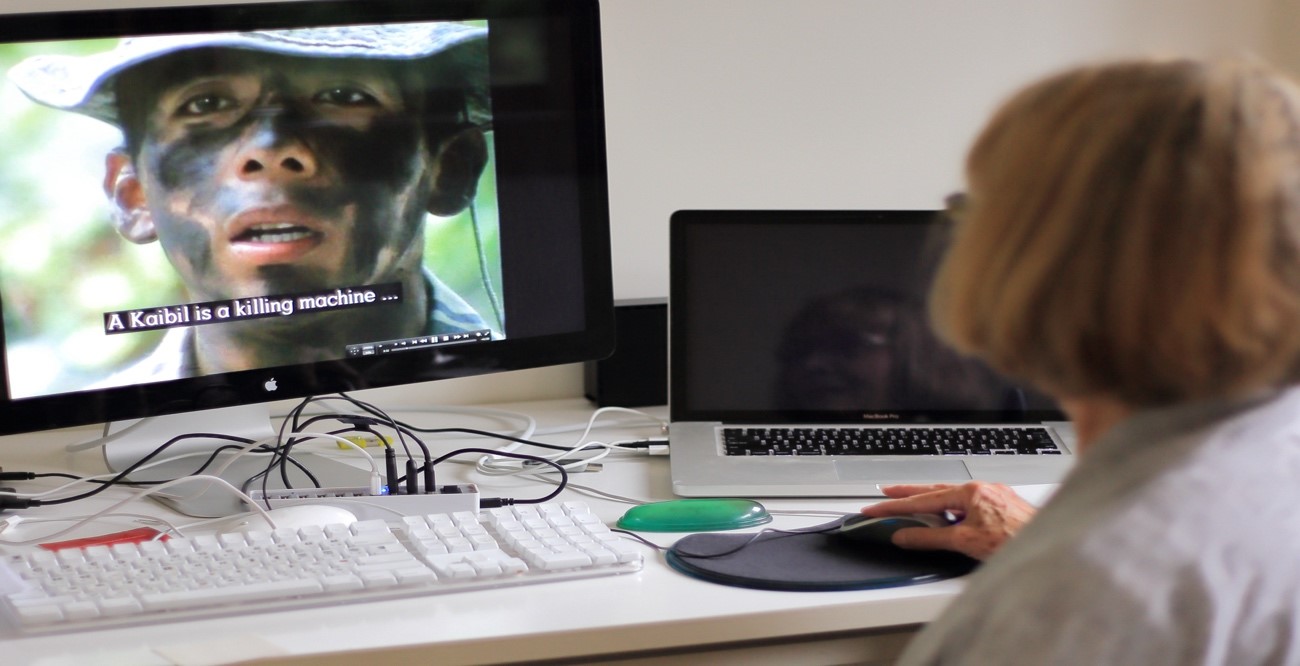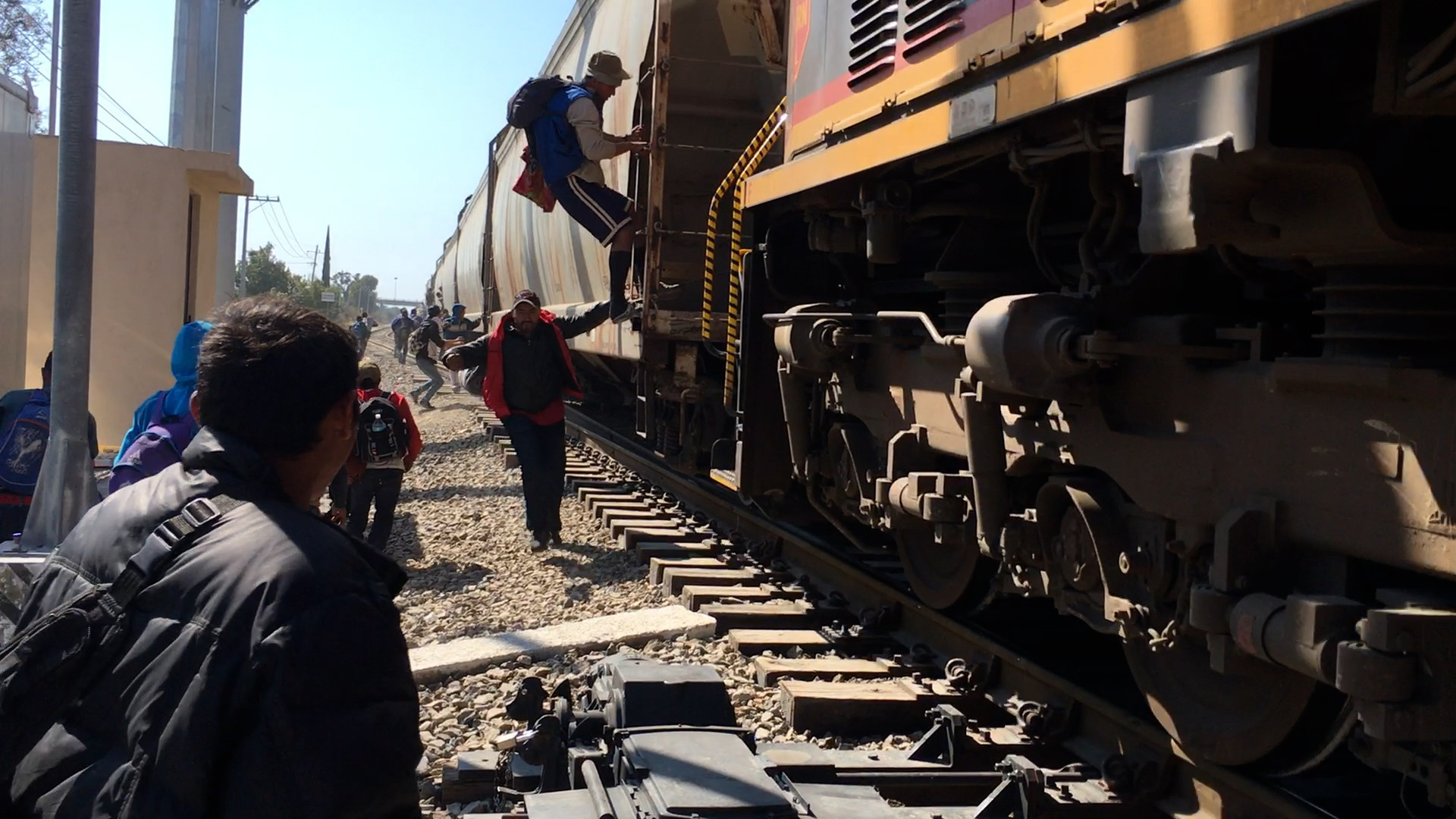Judy Jackson
Judy Jackson has made over 100 documentaries about human rights and social justice have won more than 60 international awards. They have been broadcast by the CBC, TVO, Vision TV, SCN and Knowledge in Canada; by the BBC, ITV and Channel 4 in England; and on the Discovery Channel and A&E in the U.S. Her documentaries have also led to ripples of change.
What is your project about?
This is the moving story of ABBA House, a migrant shelter founded by Pastor Ignacio Ramirez in Celaya, Mexico. Here those who have been forced to leave their Central American homes because of climate change, corruption, violence and abject poverty are offered kindness and hope – a brief respite from the hardships and dangers they face in their desperate search for a safe place to bring up their children.
They often travel on top of freight trains and sadly accidents happen. ABBA is the only shelter that treats migrants who have lost limbs. Now Pastor Ignacio has a new vision – he has been donated a large piece of land on which to create a Cultural and Human Rights Centre that will offer amputees long term services. The film is helping to raise money for this project which will be an example to the world of what is possible.
What are you ambitions with our project?
To raise awareness migrants. My documentaries give voice to the voiceless. In this world of 80 million migrants and refugees, they are often demonized, yet at ABBA they become human beings.
Tell us something about your shooting? What pleasantly surprised you?
I have made over 100 commissioned documentaries, but this is the first one with no budget. I picked up a camera, and shot and edited myself.


For what group of spectators is your film targeted?
My film is targeted at audiences who care about all that is going on in the world.
Why should distributors buy your film?
Distributors should know that audiences who have seen “Where Can We Live in Peace?” have been extremely moved, and much money has been raised for the migrants from screenings.
How would you specify your work? What characterizes your film?
My many films are always about Human Rights and Social Justice. Additionally they are about inspirational people who are creating change behind the headlines in difficult circumstances. Collectively I call them ‘Light in Dark Places.”
Why did you decided to become a filmmaker?
I decided to become a film maker because of the power of images and of story telling.
Who is your role model?
My role model is Agnes Varda, who throughout her life continued to make films – sometimes with big budgets and sometimes with tiny ones.
Which movies are your favorites? Why?
I love movies which find ways to tell difficult, and often complex stories, in simple ways.
Where do you look for inspiration for your films?
I look for the inspiration of those who are working for the betterment of others in very difficult circumstances.
Which topics interest you the most?
have always focused on those who suffer under Dictatorships and those seeking justice for war crimes.
What do you consider your greatest achievement in your career?
I have won over 60 international prizes for my documentaries, and what pleases me most is when documentary leads to change. Here is some background:
I have made over 100 documentaries about human rights and social justice which have been broadcast by the CBC, CTV, TVO, Vision TV, and Knowledge in Canada; by the BBC, ITV and Channel 4 in England; and on the Discovery Channel and A&E in the U.S. She has won more than 60 international awards. My documentaries, which focus on ‘Light In Dark Places” have also led to change. For example”
“They Shoot Children, Don’t They?” about policemen shooting street children in Guatemala City, which led to international outrage and the conviction and imprisonment of four policemen (BBC)
“Stephen Lewis: The Man Who Couldn’t Sleep.” A Trilogy of films about his amazing work as HIV/AIDs envoy to Africa raised over $1million for ‘The Stephen Lewis Foundation” (CBC) ‘The Nature of Things.”
“War In The Mind” about a treatment program at UBC for soldiers returning from war with PTSD and suicidal thoughts, raised $11/2 million to treat more soldiers. (TVO and Knowledge)
“Where Can we Live in Peace?’ has so far raised $41,000 from two small screenings in Mexico.
My greatest achievement : Never giving up!!
What do you consider most important about filming?
My aim is always to bring the voices of those who may otherwise never be heard to share with audiences in other countries who may not know they exist.
Which film technique of shooting do you consider the best?
Where Can We Live in Peace? Was shot cinema verité – nothing was set up. I believe that following events as they are actually happening is the most honest way of filming.
How would you rate/What is your opinion about current filmmaking?
It is a very difficult time for documentarians because commissioners seem to only be interested in crime and celebrity. It has always been hard to convince broadcasters that
A film in a faraway place will attract audiences, but my documentaries have always attracted large viewership.
What can disappoint you in a movie?
Documentaries which use popular formats are often disappointing.
Who supports you in your film career?
I’ve always been supported by TV commissions. But this documentary was not commissioned, I picked up a camera and filmed and edited by myself.
What are the reactions to your film? (opinion of spectators, film critics, friends and family)
Audiences so far have been incredibly moved. And real people appreciating my film is
Important to me.
Have you already visited any of the prestigious film festivals?
No I haven’t visited any of the prestigious film festivals with this film, though I have done so with previous films.
What are your future plans in filmmaking carrier?
Future plans? A film in Guatemala.
Learn more at www.Judyfilms.com
